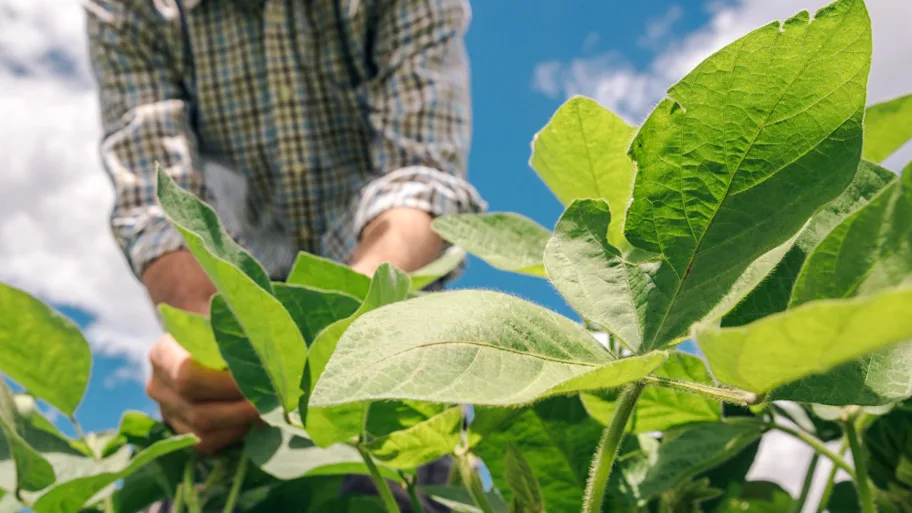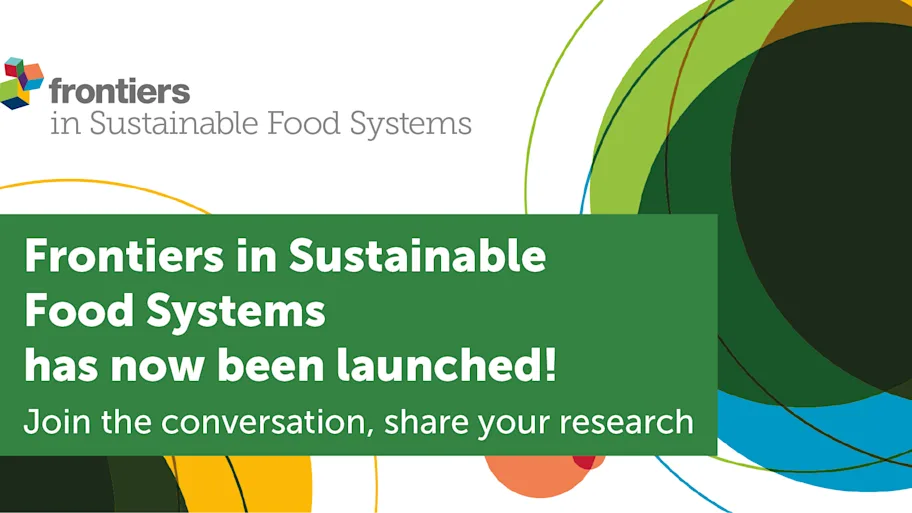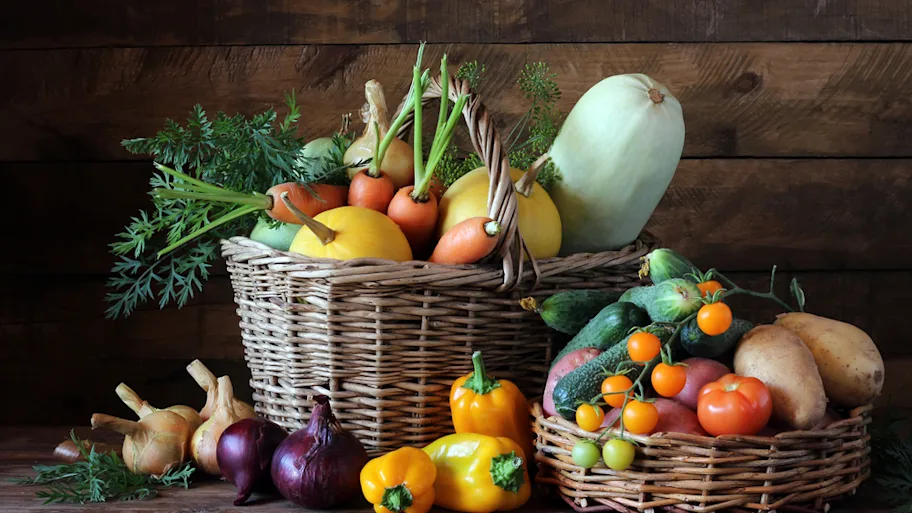
- Science News
- Frontiers news
- How do we feed a growing global population?
How do we feed a growing global population?

By 2050, there will be 9 billion people on earth. To support this future population, we will need to double current food production levels. In the face of climate changes and increasing stresses on freshwater resources, achieving food and water security represent a major global concern.
[AI in Food, Agriculture and Water](https://www.frontiersin.org/journals/artificial-intelligence/sections/ai-in-food-agriculture-and-water?utm_source=fweb&utm_medium=nblog&utm_campaign=cco -sl-frai-ai-in-food-agriculture-water) is a new specialty of [Frontiers in Artificial Intelligence](https://www.frontiersin.org/journals/artificial-intelligence?utm_source=fweb&utm_medium=nblog&utm_campaign=cco -sl-frai-ai-in-food-agriculture-water) that rises to meet this challenge. Led by Chief Editor [Matthew McCabe](https://loop.frontiersin.org/people/182225/overview?utm_source=fweb&utm_medium=nblog&utm_campaign=cco -sl-frai-ai-in-food-agriculture-water) (Professor of Remote Sensing and Water Security at KAUST), it will publish research at the cutting-edge of AI, with a focus on showcasing the delivery of AI driven insights that will advance the safety, security and sustainability of our food, agricultural and water resources.
Discover [AI in Food, Agriculture and Water](https://www.frontiersin.org/journals/artificial-intelligence/sections/ai-in-food-agriculture-and-water?utm_source=fweb&utm_medium=nblog&utm_campaign=cco -sl-frai-ai-in-food-agriculture-water)
Addressing global challenges with AI
AI is a powerful tool that can help us to utilize and manage the planet’s resources more efficiently and in more sustainable ways. Advances are being enabled by richer datasets, increased computational capacity and rapidly evolving machine analysis and interpretation techniques.
Learn more about the potential of AI and Big Data techniques for food, agriculture and water. Watch Chief Editor’s Matthew McCabe’s talk [here](https://forum.frontiersin.org/matthew-mccabe-digital-agriculture-precision-food-water-security?utm_source=fweb&utm_medium=nblog&utm_campaign=cco -sl-frai-ai-in-food-agriculture-water).
As Professor McCabe explains: “In my own field of remote sensing, I have witnessed dramatic developments in how we are collecting and curating data. We are in the midst of an information tsunami. What we often lacked were efficient tools and techniques to discriminate the signal from the noise and provide useful guidance and insight towards problems of importance. AI offers an opportunity to exploit these rapidly increasing data collections to reshape our own research fields, and also address some of the world’s major challenges”.
Delivering on the AI promise
“When we read about AI, it is often couched in terms of its ‘potential’ or ‘promise'” says Professor McCabe. “For AI to have real impact and address global challenges, we need to close the gap between research and application and do more than just demonstrate promise and potential. With the launch of [AI in Food, Agriculture and Water](https://www.frontiersin.org/journals/artificial-intelligence/sections/ai-in-food-agriculture-and-water?utm_source=fweb&utm_medium=nblog&utm_campaign=cco -sl-frai-ai-in-food-agriculture-water), we now have a multi-disciplinary forum to both learn together and advance the application of AI in a way that transcends disciplines. AI is a community-driven field, and having an open-access forum is a great way to reach out and share the developments that AI will deliver in the coming years.”
Open for submissions now: article collection on [Artificial Intelligence and Machine Learning Approaches in the Vadose Zone](https://www.frontiersin.org/research-topics/11643/artificial-intelligence-and-machine-learning-approaches-in-the-vadose-zone?utm_source=fweb&utm_medium=nblog&utm_campaign=cco -sl-frai-ai-in-food-agriculture-water) exploring artificial intelligence, machine learning and other data science-based techniques towards understanding and predicting the dynamics of water, nutrients and energy fluxes in the vadose zone.
Frontiers journals also consistently rank among the world’s most-cited in their fields and in the top Impact Factor and CiteScore percentiles. [Discover more](https://www.frontiersin.org/about/impact?utm_source=fweb&utm_medium=nblog&utm_campaign=cco -sl-frai-ai-in-food-agriculture-water)






